Recommended reads on race equity
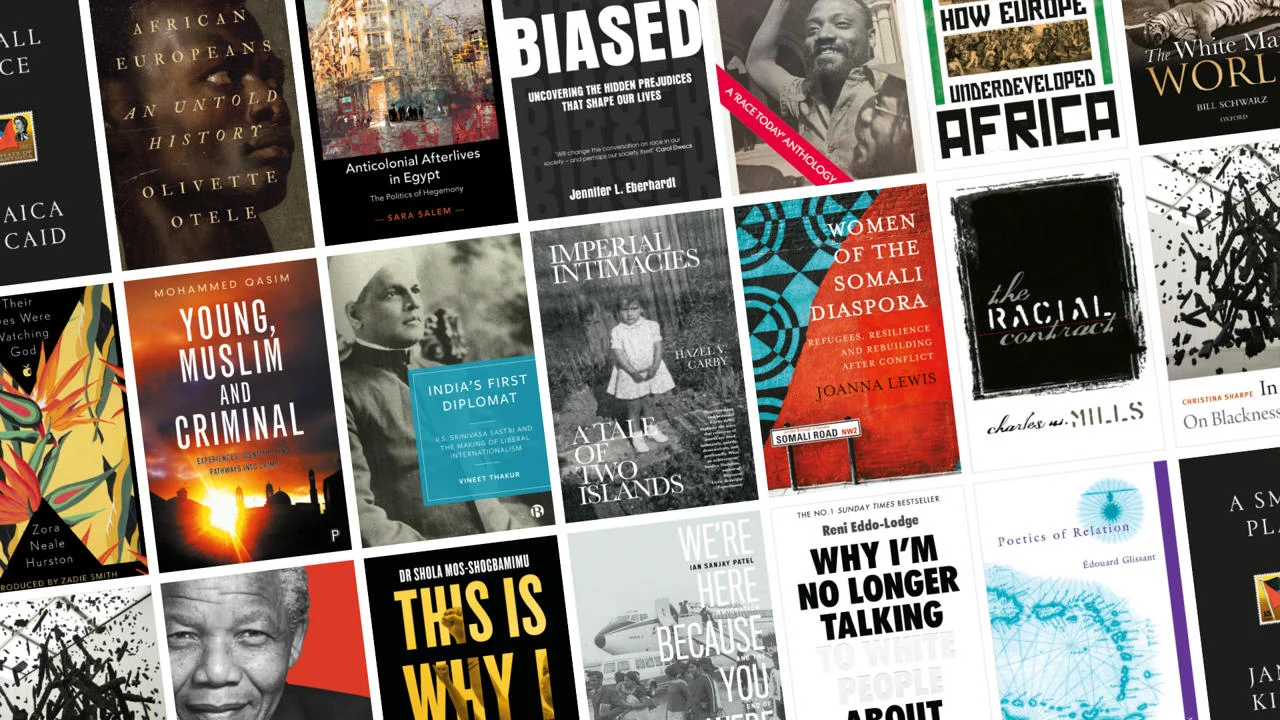
Contents
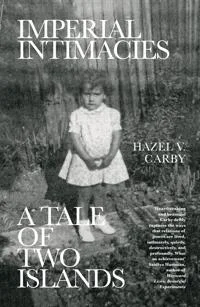
Imperial Intimacies: A Tale of Two Islands. Hazel V Carby (Verso, 2019)
Recently appointed Centennial Professor at LSE’s International Inequalities Institute (III), Professor Hazel V Carby explores the imperial connections between the UK and Jamaica and their impact upon people’s lived experiences. Her award-winning book positions family histories as a starting point for telling a broader story about constructions of Britishness, examining the intricate relationships between geographical, economic, social and personal spaces created under British colonialism. Read LSE alumna Manuela Latchoumaya’s review on LSE Review of Books.
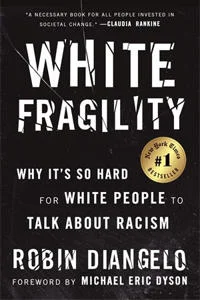
White Fragility: Why It’s So Hard For White People To Talk About Racism. Robin DiAngelo (Beacon Press, 2018)
Recommended by Adeola Akande Pierre-Noël, Centre Manager, Phelan United States Centre
Dr Robin DiAngelo’s book, White Fragility, articulates the pressing need for white people to understand and discuss the workings of racism. She urges white people to confront white privilege, intentionally take steps to dismantle white supremacy and work to deconstruct the racist structures that underpin society. Read the review on LSE Review of Books. Image reproduced with permission from Beacon Press.
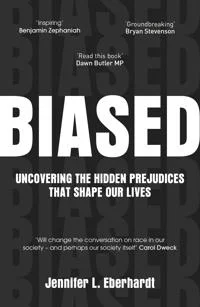
Biased: Uncovering the Hidden Prejudices That Shape Our Lives. Jennifer Eberhardt (Windmill Books, 2020)
Recommended by Dr Saipriya Kamath, Assistant Professor of Accounting, Department of Accounting
Biased by Dr Jennifer Eberhardt talks about unconscious racial biases at all levels of the society – in our neighbourhoods, schools, workplaces and criminal justice systems. Along with exposing the hidden biases, she also offers tools to address them. Dr Eberhardt's writing is based on solid research (hers and of others), but it is written in such a way that a lay person can easily understand it. She peppers it with her own experiences, which makes the book richer.
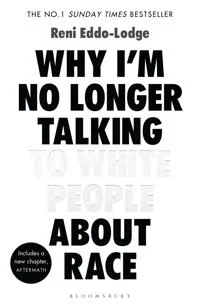
Why I’m No Longer Talking to White People About Race. Reni Eddo-Lodge (Bloomsbury, 2018)
Recommended by Adeola Akande Pierre-Noël, Centre Manager, Phelan United States Centre
This bestselling and award-winning book sparked a vital conversation about racial inequalities and racism in Britain. In an article on the LSE Higher Education blog for Black History Month 2020, the book was described as a ‘‘wake-up call to a nation in denial, an eye-opening, honest, opinionated, and challenging account of the reality of life as a person of colour in Britain’’. Read a review on LSE Review of Books.
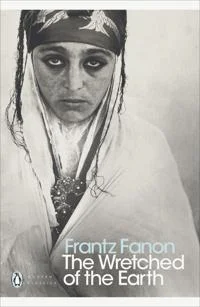
The Wretched of the Earth. Frantz Fanon (Penguin Classics, 2001 [1961])
Recommended by Dr Sara Salem, Assistant Professor, Department of Sociology
The Wretched of the Earth by Frantz Fanon, originally published in 1961, is one of the most important texts on decolonisation and anticolonialism. The book sketches out the stakes of liberation and what it might mean to truly fight for a world in which we are all free.

Here to Stay, Here to Fight: A "Race Today" Anthology. Paul Field, Robin Bunce, Leila Hassan and Margaret Peacock (eds) (Pluto Press, 2019)
Here to Stay, Here to Fight brings together the reports, essays and interviews published by the Race Today Collective, which ran from 1974-88 and focused on racial justice. Detailing industrial strikes, reports of police brutality, rally speeches, grassroots campaigning and lived experiences of poverty, criminalisation and racism, the collection is far from a historical document but rather part of our urgent collective present. Read LSE Sociology PhD student Helen Mackreath’s review on LSE Review of Books.

Poetics of Relation. Édouard Glissant (translated by Betsy Wing, University of Michigan Press, 1997)
Recommended by Rémy-Paulin Twahirwa, PhD student, LSE Department of Sociology
"In a world increasingly marked by human division (racial, ethnic, class, gender, etc) and geographical fragmentation through borders, the Antillean poet and philosopher Professor Édouard Glissant invites us in his magnum opus to the creolisation of the world by looking to the world as whole – what he calls the 'Tout-Monde'. To 'open the world' is to enter in Relation. Thus, Glissant encouraged us to step away from the 'root identity' characterised by a desire to possess territory and to exclude, even eliminate, the Other."

Familiar Stranger: A Life Between Two Islands. Stuart Hall (Penguin, 2017)
Recommended by Dr Austin Zeiderman, Associate Professor of Geography, Department of Geography and Environment
Professor Stuart Hall’s work is remarkable for its continued importance to those who seek to understand the cultural and economic logics, especially race and racism, that structure our world. This is somewhat ironic for a public thinker who always stressed the need to adjust one’s critical perspective to the changing times. But it speaks to the depth of Hall’s insight and to the vibrancy of his life, both of which are presented thoughtfully in this engaging memoir.

Their Eyes Were Watching God. Zora Neale Hurston (Virago, 2020 [1937])
Recommended by Professor Alpa Shah, Department of Anthropology
Written by the Harlem renaissance writer and anthropologist, this is a story of sexual awakening, marriage and love, told by a 40-year-old African-American character Janie Crawford, and set in Florida just after the end of slavery. Their Eyes Were Watching God is unusual for laying bare the nuances and differences within the black community: it focuses on the grip of patriarchy and the fight for women’s liberation, including from within one’s own household. This book reminds us of the need to identify the conjoined axes of oppression as they bear upon but also within communities and hence the many-pronged struggles for liberation.

A Small Place. Jamaica Kincaid (Daunt Books Publishing, 2018 [1988])
Recommended by Dr Ian Sanjay Patel, Visiting Fellow, LSE Human Rights, Department of Sociology
This slim volume remains one of the most exquisitely rendered descriptions of colonial life and its inequalities ever written. In honest and arresting prose, Professor Jamaica Kincaid offers a series of vignettes about her early life growing up on the small island of Antigua, where the disparities of colonial life are overcome by the restive intelligence of Kincaid’s adolescent self.

Women of the Somali Diaspora: Refugees, Resilience and Rebuilding After Conflict. Joanna Lewis (Hurst, 2021)
Women of the Somali Diaspora: Refugees, Resilience and Rebuilding After Conflict explores the lives of Somali mothers and daughters who came to Britain in the 1990s to escape civil war. It uncovers three overlapping histories: the personal histories of these women and their experiences of resilience as an individual, lived historical process; a collective history of refugees as rebuilders and the dynamism of the Somali diaspora; and the forgotten history and hidden legacies of Britain’s colonial past. Read more about Joanna Lewis's research in the article "Resilient women: what we can learn from Somali refugees in Britain".

"Under Western Eyes: Feminist Scholarship and Colonial Discourses". Chandra Mohanty (Published by Feminist Review, November 1988)
Recommended by Dr Sara Salem, Assistant Professor, Department of Sociology
Under Western Eyes remains one of the most important feminist texts dealing with colonialism and knowledge production in relation to women in the Global South. Professor Chandra Mohanty asks us to always think about where knowledge comes from and what the political stakes of knowledge production are.
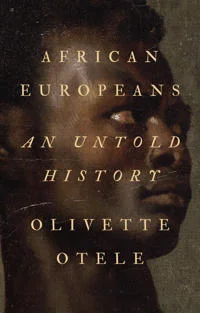
African Europeans: An Untold History. Olivette Otele (Hurst Publishers, 2020)
Recommended by Adeola Akande Pierre-Noël, Centre Manager, Phelan United States Centre and Dr Joanna Lewis, Associate Professor, Department of International History
Professor Olivette Otele offers a new history that celebrates the lives of African Europeans through tracing a long African European heritage, drawing connections across time and space and debunking persistent myths. This ‘‘thrilling and informative read’’ provides an excellent introduction to scholars and those new to exploring these histories. Read the review on LSE Review of Books.
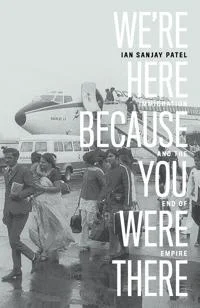
We’re Here Because You Were There: Immigration and the End of Empire. Ian Sanjay Patel (Verso, 2021)
Dr Ian Sanjay Patel’s book explores post-war immigration laws, the afterlives of British imperial citizenship and related attempts to reimagine and rejuvenate British imperialism after 1945. Contributing to transnational histories of decolonisation, We're Here Because You Were There also examines the interconnections between human rights, post-war migration and international diplomacy. Read an interview about the book on LSE Review of Books.

Young, Muslim and Criminal: Experiences, Identities and Pathways into Crime. Mohammed Qasim (Policy Press, 2018)
In recent years there has been heightened negative attention on young British male Muslims, who are increasingly perceived to be dangerous and criminal. Yet there is little understanding of the lived experience of those who offend. In Young, Muslim and Criminal Dr Mohammed Qasim explores the complex nature of young men’s pathways into crime, drawing on four years with a group of young British Pakistani Muslim men to unwrap their lives, their socio-economic situation, the make-up of their community, the cultural and religious influences that have impacted them and their involvement in crime. Read more about Mohammed Qasim's work in the article "Young, Muslim and Criminal: how poverty, racism and inequality have impacted the Pakistani community in Bradford".
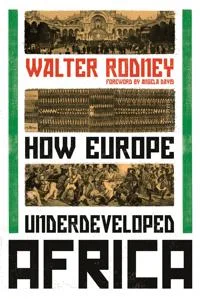
How Europe Underdeveloped Africa. Walter Rodney (Verso, 2018 [1972])
Recommended by Rémy-Paulin Twahirwa, PhD student, LSE Department of Sociology
How Europe Underdeveloped Africa is a masterly work demonstrating in detail the process of "underdevelopment" of the African continent initiated by the European colonial empires in extractivist projects aimed at transferring resources from Africa to Europe. How can it be explained that the continent richest in natural resources is still today hit by the most extreme misery? For the Guyanese scholar and activist Professor Walter Rodney, Africa's "underdevelopment" is the consequence of centuries of exploitation, interference and (neo)colonial domination by the West.

Anticolonial Afterlives in Egypt: The Politics of Hegemony. Sara Salem (Cambridge University Press, 2020)
Anticolonial Afterlives in Egypt presents an alternative story of the 2011 Egyptian revolution by revisiting Egypt’s moment of decolonisation in the mid-20th century. Putting theorists Antonio Gramsci and Frantz Fanon into dialogue, Dr Sara Salem explores the country’s first postcolonial project, created by Gamal Abdel Nasser and the Free Officers in 1952, to show how the enduring afterlives of anticolonial politics are central to understanding political events in Egypt today. Read the review on LSE Review of Books. Read more about Sara Salem's work in the article "Rethinking anticolonialism: what can we learn from Egypt’s political journey?".

The White Man’s World. Bill Schwarz (Oxford University Press, 2012)
Recommended by Dr Ian Sanjay Patel, Visiting Fellow, LSE Human Rights, Department of Sociology
Professor Bill Schwarz’s book dramatically brings to life the frontier worlds of the British empire, not least the settler-colonial experiences of global Englishmen, and the ways in which these worlds and experiences came to redefine the meaning and purpose of empire itself. In The White Man’s World, Schwarz brilliantly draws our awareness to the connections between British imperial thought and attendant imperial theories of what he terms "racial whiteness".

In the Wake: On Blackness and Being. Christina Sharpe (Duke University Press, 2016)
Recommended by Rémy-Paulin Twahirwa, PhD student, LSE Department of Sociology
The past is never just the past. In this valuable contribution to Black studies, Professor Christina Sharpe interrogates how slavery, particularly the slave ship, continues to haunt the daily lives of the black diaspora through the analysis of textual, audiovisual and performance works. Using metaphors and concepts such as "the wake", "the asterisk" and "wake work", In the Wake: On Blackness and Being interrogates what survives out of humanities trapped in the "hold" of history.

India’s First Diplomat: V S Srinivasa Sastri and the Making of Liberal Internationalism. Vineet Thakur (Bristol University Press, 2021)
Recommended by Dr Ian Sanjay Patel, Visiting Fellow, LSE Human Rights, Department of Sociology
Dr Vineet Thakur’s latest book is an important and exciting contribution to our understanding of race and the global colour line in the British imperial world of the 1920s. India’s First Diplomat is meticulously researched and delivers a rich and compelling story of the foundational role that the early Indian diplomat V S Srinivasa Sastri played in promoting a rights-based vision of the British empire. Amid a series of diplomatic missions to every corner of the British imperial world, Sastri deftly challenged the idea that Indian British subjects could be denied the full repertoire of political rights on the basis of race.
Further readings
Recommended by Adeola Akande Pierre-Noël, Centre Manager, Phelan United States Centre
- Things Fall Apart. Chinua Achebe (Penguin Classics, 2006 [1958])
- Slay in Your Lane: The Black Girl Bible. Yomi Adegoke and Elizabeth Uviebinené (4th Estate, 2018)
- Half of a Yellow Sun. Chimamanda Ngozi Adichie (4th Estate, 2006)
- Natives: Race and Class in the Ruins of Empire. Akala (Two Roads, 2018)
- I Am Not Your Negro. James Baldwin (and Raoul Peck) (Penguin Classics, 2017)
- Girl, Woman, Other. Bernardine Evaristo (Hamish Hamilton, 2019)
- Living While Black: Essential Guide to Overcoming Racial Trauma. Guilaine Kinouani (Ebury Press, 2021)
- Long Walk to Freedom. Nelson Mandela (Little & Brown, Co, 1994)
- The Racial Contract. Charles W. Mills. (Cornell University Press, 1999)
- This is Why I Resist: Don't Define My Black Identity. Dr Shola Mos-Shogbamimu (Headline, 2021)
- Black and British: A Forgotten History. David Olusoga (Macmillan, 2017)
- salt. Nayyirah Waheed (CreateSpace, 2013)
- When We Ruled: The Ancient and Medieval History of Black Civilisations. Robin Walker (Black Classic Press, 2011).
Thanks to all LSE staff and students who helped with putting together this reading list, which was compiled by Dr Rosemary Deller, Managing Editor of LSE Review of Books.
Download a PDF version of this article




